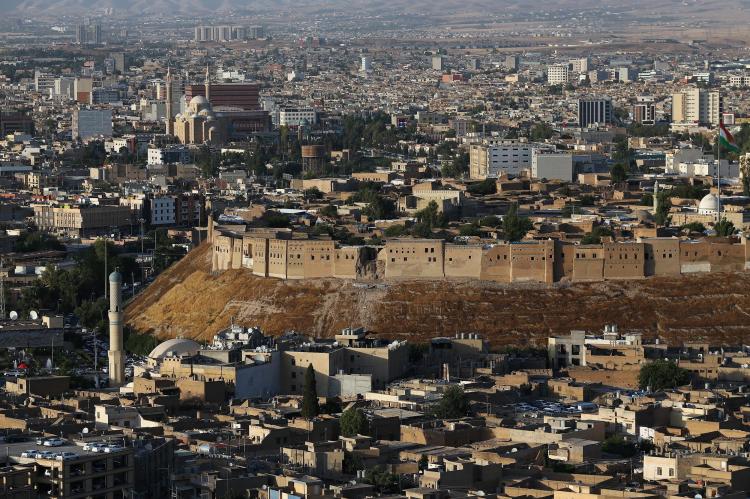Claim: Turkey’s involvement in Mosul operation can spark sectarianism
New York Times editorial claims that Turkey’s involvement in operation to liberate Mosul from DAESH can lead to “new sectarian complications”
On 1 November 2016, an editorial published in the New York Times claimed that sectarianism might thrive if Turkey plays any role in the US-backed military operation to liberate the Iraqi city of Mosul from DAESH.
“Mr. Erdogan is also demanding a combat role in the battle in Iraq to liberate Mosul, but any involvement there of Turkey’s predominantly Sunni troops could create new sectarian complications,” wrote the article without giving further explanation for the creation of “new sectarian complications”.
Conversely, Turkey has recently expressed the opposite of this warning, saying that sectarianism might soar if Turkey is not allowed to participate in the operation and the Iraqi forces act alone. Turkish Prime Minister Binali Yildirim “warned of the risk of ‘enflaming’ sectarian tensions if the Sunni Arab-majority region around Mosul were to be placed under Shiite militia control after the offensive.”
As a matter of fact, the Sunnis constitute the largest religious group dwelling in Mosul. An article from the Wall Street Journal called Mosul “the Sunni-majority city” while another put it as “the Sunni-Arab city”. Yet the city has a religiously diverse population that includes Christians and Yazidis too. Analysts address this demographic condition of Mosul and the accompanying sectarian problems as factors which eased the capture of the city by DAESH.
An article published in the Telegraph remarked on DAESH’s invasion of Mosul as the following: “In Iraq it is a sectarian conflict. Iraq’s second biggest city Mosul did not fall to IS [DAESH] this June by magic or force of arms. It fell because the people living there were fed up with the sectarianism of the Shia dominated Iraqi government.”
The fall of Mosul was accounted for from the same perspective in an Independent editorial as well. “The reason Isis was able to make such a rapid advance in the west and north of Iraq was because it exploited the anger and resentment felt by the Sunni population at their treatment in the hands of the Shia-dominated government of Nour al-Maliki.”
According to a news story published in the Independent again, “The [Iraqi] government in the Green Zone, the great fortress it inherited from the Americans, is not shy about its sectarian allegiance. Shia banners and posters of Imam Ali and Imam Hussein decorate checkpoints and block-houses in the Green Zone and much of the rest of Baghdad, including prisons and police stations.”
But the sectarianism of the Iraqi government was not confined to decoration. According to a Human Rights Watch report, “Members of Shia militias, who the Iraqi government has included among its state forces, abducted and killed scores of Sunni residents in a central Iraq town and demolished Sunni homes, stores, and mosques following January 11, 2016 bombings claimed by the extremist group Islamic State, also known as ISIS.”
The National, a media portal owned by the government of the United Arab Emirates, reported “Iraqi forces’ tanks shown in the media raising sectarian slogans while progressing to Mosul”.



